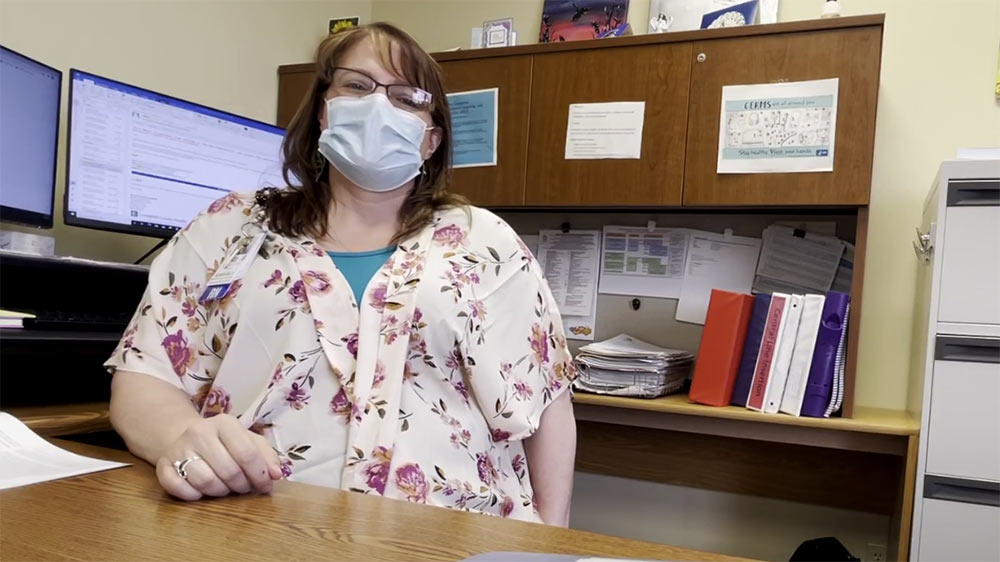page
From Esoteric to Essential: The Fluid Yet Enduring Relevance of the Humanities

“Experience has shown, and a true philosophy will always show, that a vast, perhaps the larger, portion of truth arises from the seemingly irrelevant.” —Edgar Allan Poe, The Mystery of Marie Rogêt
From Esoteric to Essential
The Fluid Yet Enduring Relevance of the Humanities

How can we make sense of what’s happening in the world? Where should we focus our attention? What do we need to know?
The answers to these questions are constantly changing. In our complex, information-saturated world, subjects that once seemed arcane and esoteric can suddenly become the topic on everyone’s minds—the narrow width of the Suez canal, 1860s statutory law in the Arizona Territory, the timing of the spring thaw in Donetsk.
In those moments, we most appreciate the scope of humanities disciplines, which offer access into the lives and thoughts of individuals from every corner of the globe and draw on knowledge from societies that span millennia.
The work of nearly 1,600 NHC Fellows provides an eloquent testament to the broad spectrum of humanities research. Their work has developed our understanding of iconic figures and events, shed light on people, places, and things that have gone unnoticed, and helped situate contemporary concerns by tracing their roots to forgotten moments from the past.
Fellows’ projects have traced the ancient origins of the pencil, examined the complex interweaving of ideology and creativity in the music and dance of North Korea, and revealed the ways that a brief, forgotten empire from a thousand years ago continues to shape South and Central Asia. This work reminds us that humble things we take for granted may have deep and elaborate histories, that the dialogue between cultural expression and political regimes is both unique and universal, and that our contemporary lives continue to be influenced by past events, even those that have been lost to popular memory.
A glimpse into recently published Fellows’ projects further highlights the breadth and intriguing value of ongoing humanities research.
Examining the Full Tapestry of Human Experience
- John R. Levinson (NHC Fellow, 2000–01), The Greek Life of Adam and Eve
- Michael Johnston (NHC Fellow, 2020–21), The Middle English Book: Scribes and Readers, 1350–1500
- Harlan Beckley (NHC Fellow, 2017–18), Rethinking Equal Opportunity: Dignity, Human Capability, and Justice
- Shellen Xiao Wu (NHC Fellow, 2016–17), Birth of the Geopolitical Age: Global Frontiers and the Making of Modern China
- Olga Sedakova, trans. by Martha M. F. Kelly (NHC Fellow, 2022–23), Old Songs
- Cynthia Radding (NHC Fellow, 2010–11), Bountiful Deserts: Sustaining Indigenous Worlds in Northern New Spain
- Melissa Mueller (NHC Fellow, 2019–20), Sappho and Homer: A Reparative Reading
- Helmut Puff (NHC Fellow, 2020–21), The Antechamber: Toward a History of Waiting
How Do We Know What We Know: Providing a Scholarly Response in Real-Time
In the fall of 2019 the notion of a century-defining pandemic was the furthest thing from most people’s minds, and the history of handling public health crises seemed like a subject only for specialists. Six months later, COVID-19 disrupted every aspect of our lives. The NHC addressed this crisis in a number of ways, focusing especially on deploying the knowledge of humanities experts to help navigate the pandemic and to use humanities approaches to help address the serious shortcomings that it exposed.
In the days immediately after nationwide business and school closings, the Center launched the first of several webinars to help teachers, “Putting Coronavirus in Context: A History of Disease and Epidemics” led by historian Mari K. Webel from the University of Pittsburgh. Later in the year we presented “Oral History and the Pandemics of Social Suffering: Listening and Transformation” with Mary Marshall Clark, director of Columbia University’s Center for Oral History Research. And, as dubious treatment options emerged and eventually vaccines became available, we hosted webinars on “Countering Disinformation in an Era of Pandemics and Conspiracies” with Nina Jankowicz from the Woodrow Wilson International Center for Scholars, and “Pox, Populism, and Politics: Three Centuries of American Vaccination Controversies” with historian Robert Johnston from the University of Illinois at Chicago.
The pandemic also inspired the creation of the NHC’s COVID-19 Oral History Project to capture and preserve experiences of a unique time in our medical and social history. A robust archive will launch later this year of interviews with healthcare workers who were directly involved in pandemic response efforts across the US.
Highlighting how the humanities connect the timeless and the immediate is also exhibited in the Center’s work with teachers.
Our most recent slate of webinars, each of which drew hundreds of participants, included not only a wonderful session on “Teaching Chaucer,” but installments on using “Hip Hop and Youth Culture as Pedagogy,” on contemporary “Native (Self) Representation,” and on “How Will Students Learn to Write Now That We Have ChatGPT?”
Many of the Center’s webinars are designed to frame contemporary events within broader historical and cultural contexts, grounding the “current” within the grander scheme of human events. For example, when the Russian military invaded Ukraine in February 2022, Christian Raffensberger (NHC Fellow, 2021–22) offered to lead a webinar for teachers to help explain the background of the war including the historical inaccuracies that Vladimir Putin had been using to justify the military aggression.










